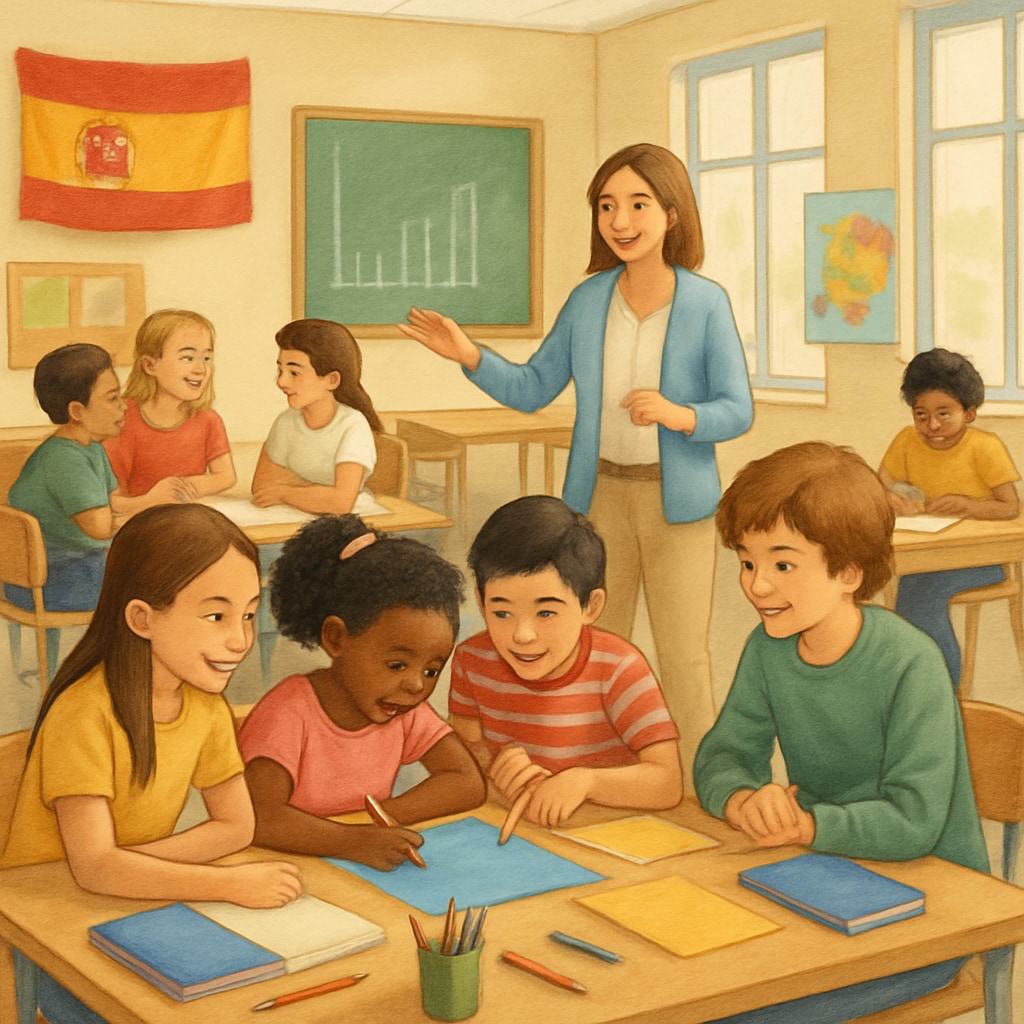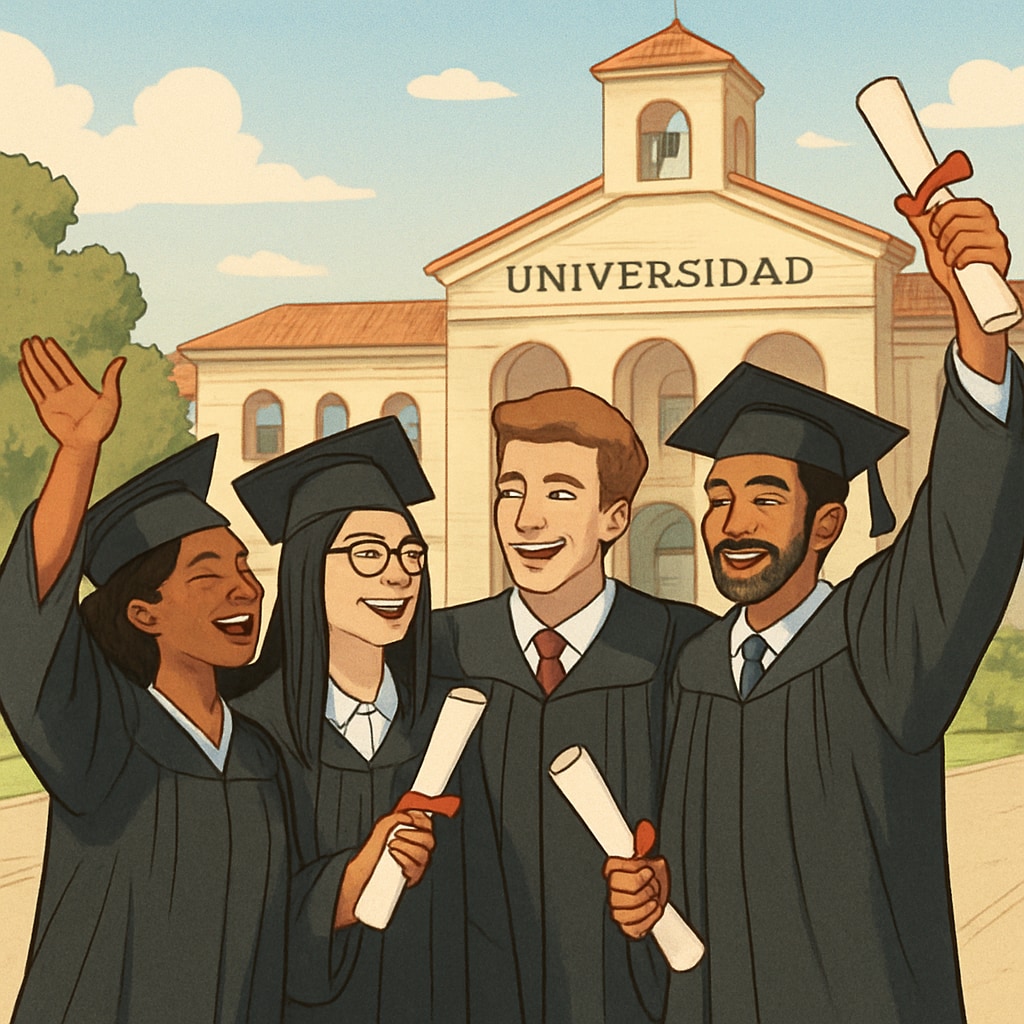Deciding to pursue higher education abroad is a transformative experience, and studying in Spain offers a unique combination of academic excellence, cultural richness, and opportunities for personal growth. For those considering a master’s degree in Spain, the journey involves not only academic achievements but also cultural adaptation. Additionally, international families often explore Spain’s K-12 education system to understand how their children can integrate into the local educational framework. This article delves into Spain’s education system, highlights the challenges and opportunities of cultural adaptation, and provides practical advice for families navigating these transitions.
Why Spain? Key Advantages for International Students
Spain has become a popular destination for international students due to its high-quality universities, affordable tuition fees, and vibrant cultural environment. Institutions such as the University of Barcelona and IE Business School are recognized globally for their academic excellence. Moreover, the cost of living in Spain is relatively lower compared to other European countries, making it an attractive option for budget-conscious students.
Another advantage is the language diversity. While Spanish is the primary language, many universities offer programs in English, especially at the master’s level. This allows students to pursue advanced studies without being fluent in Spanish, though learning the local language can significantly enhance the cultural experience.
The K-12 Education System: A Foundation for Cultural Adaptation
For international families, understanding Spain’s K-12 education system is essential. The system is divided into several stages: Educación Infantil (preschool), Educación Primaria (primary education), Educación Secundaria Obligatoria (compulsory secondary education), and Bachillerato (post-compulsory secondary education). Public schools are free and follow a standardized curriculum, while private and semi-private schools offer alternative educational approaches, including international and bilingual programs.
One of the key strengths of Spain’s education system is its focus on holistic development. Schools emphasize not only academics but also extracurricular activities and social skills. This approach helps children adapt to a new cultural environment while building strong interpersonal connections with their peers.

Adapting to a New Culture: Challenges and Strategies
While studying in Spain offers many benefits, cultural adaptation can be a challenge for international students and families. Differences in communication styles, social norms, and daily routines may lead to initial discomfort. For example, the concept of the “siesta” and late dining hours may take some getting used to. Additionally, navigating bureaucratic processes, such as obtaining a student visa or enrolling children in local schools, can be overwhelming.
Here are some strategies to ease the adaptation process:
- Learn the language: Even a basic understanding of Spanish can make daily interactions smoother and foster a deeper connection with the local community.
- Engage in cultural activities: Participating in local festivals, joining clubs, or attending cultural events can provide valuable insights into Spanish traditions.
- Build a support network: Connecting with fellow international students, expatriate communities, and local residents can create a sense of belonging and offer practical advice.
- Stay open-minded: Embrace the differences as part of the learning experience and view challenges as opportunities for personal growth.
Long-Term Opportunities: From Education to Settlement
For those planning to settle in Spain after completing their studies, the country offers pathways for long-term residency. Graduates from Spanish universities may qualify for a “job-seeker” visa, allowing them to stay in Spain while searching for employment. Additionally, sectors such as education, technology, and tourism often have opportunities for skilled professionals.
Families considering permanent relocation should also evaluate the long-term benefits of Spain’s education system for their children. The emphasis on multilingual education, cultural awareness, and social integration equips students with valuable skills for a globalized world.

In conclusion, studying in Spain and adapting to its culture is a rewarding journey that offers both academic and personal enrichment. By understanding Spain’s education system, embracing cultural differences, and leveraging available resources, international students and families can make the most of this transformative experience. Whether you’re pursuing a master’s degree, exploring K-12 education options for your children, or planning for long-term settlement, Spain provides a welcoming and enriching environment for all.
Readability guidance: This article uses concise paragraphs, clear headings, and lists to enhance readability. Transition words like “however,” “in addition,” and “for example” are included to improve flow. Long sentences and passive voice are kept to a minimum.


